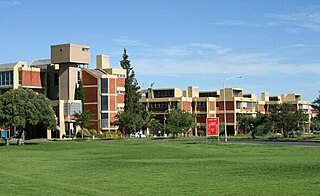Related Research Articles

The World Union of Jewish Students is the international, pluralistic, non-partisan umbrella organisation of independent Jewish student groups in 38 countries. The World Union of Jewish Students (WUJS) aims to connect, represent, and empower Jewish students globally, promoting the unity and participation of these students in advancing the Jewish people's aspirations, continuity, and cultural heritage.

The National Council is the upper chamber of Namibia's bicameral Parliament. It reviews bills passed by the lower chamber and makes recommendations for legislation of regional concern to the lower chamber.
The Namibia National Students Organisation (NANSO) is a national student organisation in Namibia. It was founded on 2 June 1984 in Döbra, about 25 kilometres (16 mi) north of the capital Windhoek.
Ehenye is a village on the edge of the town, of Oshakati, Namibia. The village was formed in the 1950s by people who were forcefully removed from Erundu by the South African apartheid regime to pave way for the development of the town. The village has approximately 58 homestead and the population of 400 people, of which 45% of the population are elderly people over the age of 50. The village has a primary school known as Ehenye PS which was established in 1997, the school has 15 teachers, 470 students and covers grades 1-7. Since moving to Ehenye village, villagers has been living in peace and harmony until 1992, when the Oshakati town council approached them for the first time concerning their land.
Namibia Nature Foundation established in 1987 is non-governmental organization located in Windhoek, Namibia which was set up under a deed of trust as a non-profit organization with an unrelated board of trust. It was initially established to help the Department of Nature Conservation to raise and administer funds for the conservation of wildlife and protected area management. The Namibia Nature Foundation is a member of the International Union for Conservation of Nature.
Esty Amukwaya is a Namibian footballer who plays as a centre-back. She competed in the Namibia Women's Super League for UNAM Bokkies and was an important member of the Namibia women's national team.
Veweziwa Kotjipati is a Namibian footballer who plays as a left back for German Niederrheinliga club Borussia Mönchengladbach II and the Namibia women's national team. She has also been utilised as a midfielder or striker.
European Sports NGO Youth is the non-governmental umbrella youth organisation of ENGSO. It has the aim to represent the young Europeans in sports in 34 countries and to achieve, promote and support the implementation of the ENGSO guidelines for children and youth sport. ENGSO Youth promotes health, sustainable development, sport diplomacy, education and employability, and inclusion through sports. ENGSO Youth is member of the European Youth Forum since 2007.
The Benguela Current Commission, or BCC, is a multi-sectoral inter-governmental, initiative of Angola, Namibia and South Africa. It promotes the sustainable management and protection of the Benguela Current Large Marine Ecosystem, or BCLME. The BCC was established in January 2007 through the signing of an Interim Agreement between the governments of Angola, Namibia and South Africa. Then, on 18 March 2013, the three governments signed the Benguela Current Convention, an environmental treaty that entrenches the Benguela Current Commission as a permanent inter-governmental organization.
The Institute for Security Studies, also known as ISS or ISS Africa, described itself as follows: "an African organisation which aims to enhance human security on the continent. It does independent and authoritative research, provides expert policy analysis and advice, and delivers practical training and technical assistance." Their areas of research include transnational crimes, migration, maritime security, development, peacekeeping, peacebuilding, crime prevention, criminal justice, conflict analysis and governance. It is the largest independent research institute in Africa dealing with human security and is headquartered in Pretoria, South Africa, with offices in Kenya, Ethiopia and Senegal. In 2019, it was ranked 116th by the Global Go To Think Tanks Report and 55th among think tanks outside the United States.
Job Shipululo Amupanda is a Namibian activist, associate professor and politician who served as Mayor of the City of Windhoek, in office from 2 December 2020 to 1 December 2021. He is an associate Professor at the University of Namibia before he co-founded the Affirmative Repositioning movement, a movement setup by radical youth activists of the SWAPO Party Youth League in November 2014.
Joseph Kalimbwe is a Zambian politician, author and activist. Previously, he was president of the African Union youth simulation in 2014 and president of the student representative council of the University of Namibia in 2017. He has written for the Namibian Sun, and has published three books including Persecuted in Search of Change in 2017, The Pain of An Empty Stomach in 2015 and Teenage-Hood & the Impact of the Western World in 2014.

University of Namibia Student Representative Council was founded on 20 February 1992, and is recognised as the legal representative body for the students of the University of Namibia by the University of Namibia Act 18 of 1992. It is responsible for representing the interests of the students to the management of the University and to local and national government. It consists of representatives from all twelve campuses across Namibia.
Dimbulukeni 'Dee' Nauyoma is a Namibian youth activist who along with Job Amupanda and George Kambala co-founded a radical youth movement known as the Affirmative Repositioning in November 2014. Prior to the formation of the Affirmative Repositioning, he served in the SWAPO Youth League until 2014. From 2015 to 2018, he served as Secretary General of the Namibia National Students Organisation.
George Hidipo Hamba Kambala is a Namibian youth activist who along with Job Amupanda and Dimbulukeni Nauyoma co-founded a radical youth movement known as the Affirmative Repositioning in 2014 to advocate for land among Namibian youths. He also served in the SWAPO Youth League before his subsequent expulsion for his involvement in the youth movement.
Abraham Kanime is a retired Namibian police officer who served as the chief of the country's only metropolitan Police force, the Windhoek City Police.
Angelina Ndinouange Immanuel is a Namibian youth activist and educator. She first rose to national attention after the decision to challenge the ruling SWAPO Party in the Ondangwa elections. The decision led to condemnation from members of the party, among them Prime Minister Saara Kuugongelwa.
The LPM Youth and Students Command Element is a youth and student wing body of the Landless People's Movement (Namibia). Formed in 2018, the wing has been led by Duminga Ndala since its inception.
Inna Koviao Hengari is a Namibian politician, student leader and youth activist. A member of the Popular Democratic Movement, she became a member of the National Assembly on 20 March 2020, the youngest since McHenry Venaani in 2004. Previously she served as Vice President of the UNAM SRC and the Students Union of Namibia.
Alma Mekondjo Nankela worked as a specialist at the National Heritage Council of Namibia until 2021. She developed and implemented heritage resource policies and operational guidelines to ensure sustainable utilization and professional conservation. Nankela oversaw the integration of UNESCO's Conventions and other internationally recognized laws into Namibia’s cultural heritage resources systems. She advised the Culture and Heritage Sector on the appropriate measures towards research, conservation, management and promotion of Namibia's cultural heritage resources. She worked closely with local communities to strengthen, encourage and promote their involvement in the preservation and management of their heritage properties. She liaised and collaborated with regional, international heritage professionals and other bodies relating to scientific research and conservation of heritage resources. Her notable scientific and management work is particularly known in the Brandberg, Erongo Mountains, Twyfelfontein World Heritage Site, Spitzkoppe Mountains, Sperrgebiet, Khuiseb Delta, Etosha and Kalahari Basin. She has also assisted the National Museum of Namibia in relations to policy development, preservation, curation and management of archaeological objects, repatriated human remains.
References
- ↑ https://www.namibian.com.na/181232/archive-read/National-Youth-Council-readying-for-change | National Youth Council readying for change - The Namibian
- ↑ https://www.namibian.com.na/index.php?id=50821&page=archive-read | Youth Council calls for student help - The Namibian
- ↑ https://allafrica.com/stories/201302131088.html | Namibia: The National Youth Council Expands Youth Credit Programme - allAfrica.com
- ↑ https://www.namibian.com.na/index.php?id=122576&page=archive-read | National Youth Council of Namibia at 20 – A Legacy To Celebrate - The Namibian
- ↑ https://kundana.com.na/amp/national-youth-expo-focuses-youth-development | National Youth Expo focuses on youth development - New Era Live
- ↑ https://www.namibiansun.com/news/youth-council-to-promote-road-safety2018-04-23 Youth Council to promote road safety - Education - Namibian Sun